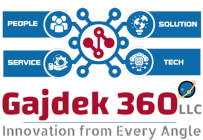Although the new import tariffs imposed by the Trump administration do not tax semiconductor imports, they do tax imports of wafer fabrication equipment (WFE) made outside of the U.S. and used by American chipmakers. As a result, companies like Intel, GlobalFoundries, Samsung Foundry, and TSMC will have to pay at least 20% more for chipmaking tools in the U.S. than they do in other countries, which will likely affect the prices of chips made in America.
Although the U.S.-based Applied Materials, KLA, and Lam Research control about 50% of the chipmaking tool market, producers of fab tools from China, Europe, Japan, South Korea, and Taiwan command the remaining 50%. U.S.-based chipmakers hardly use tools made in China, but they certainly use lithography, etching, and deposition equipment produced in the EU, Japan, South Korea, and Taiwan. Starting from April 9, they will have to pay a 20% to 32% import tax (depending on the origin of the equipment) when buying semiconductor production equipment from companies in these countries, which will inevitably affect their costs in the U.S.
Given that equipment costs determine the costs of chips more than anything else, expect a tangible increase in production costs in America. Then again, if the Trump administration imposes additional tariffs on chips made elsewhere, this will somewhat level the costs of chips produced overseas and domestically. However, this will not make chips made in the U.S. more competitive on the global market.
20% to 32% more for wafer fab equipment
The 20% import tax on lithography tools made by ASML will probably have the biggest impact on American chipmakers as ASML does not really have U.S.-based rivals when it comes to advanced immersion DUV litho tools as well as Low-NA EUV and High-NA EUV litho machines. While a 20% rate seems modest compared to the 54% tariffs on Chinese imports, they apply to extremely costly equipment.
ASML’s advanced immersion DUV (ArF) machines used for sub-10nm fabrication processes cost $82.5 million per unit on average (based on the company’s Q4 FY2024 results), a Low-NA EUV system is priced around $235 million depending on configuration, and its upcoming High-NA EUV tool is expected to cost $380 million. With the new import duties, those same tools will cost American chipmakers $99 million per Twinscan NXT:2000i-series DUV machine, $282 million per Twinscan NXE:3800E Low-NA EUV system, and $456 million for next-generation Twinscan EXE:5000-series High-NA EUV tool.
It is noteworthy that ASML produces not only lithography scanners but also metrology and inspection tools, which will also become more expensive for American chipmakers. In fact, some of ASML’s HMI eScan e-beam tools are assembled in Taiwan, and they will be 32% more expensive for American buyers. The good news is that ASML can expand the production of HMI tools in San Jose, California.
In addition, there are other European fab equipment makers, such as ASM International, which makes atomic layer deposition (ALD) and epitaxy tools, and Aixtron, which makes deposition equipment for compound semiconductors (GaN, SiC, etc.), which are also produced in the U.S. (by companies like Macom and X-Fab).
Speaking of cleaning, coating, deposition, and etching tools, tools from Japan-based companies like Tokyo Electron and Screen Holdings are quite popular on the market, and they are set to get 24% more expensive for American companies.
Domestic replacements?
Given that wafer fab equipment from Europe and Asia has just gotten 20% to 32% more expensive for American buyers, a natural question is whether these tools can be replaced with ones produced in the U.S.
ASML has only two big rivals — Canon and Nikon — and they are based in Japan and do not produce EUV systems or advanced DUV scanners anyway, so American fabs will have to pay 20% extra for ASML tools in the foreseeable future. The actual impact of ASML’s tools on production costs will be determined by whether a particular product is more lithography intensive (DRAM, logic), or etching and deposition intensive (3D NAND).
As for cleaning, coating, deposition, and etching tools, Applied Materials, KLA, and Lam Research build world-class machines for these steps. However, if a particular process technology and production flow already integrates a certain system from Tokyo Electron, then switching to a different tool is extremely complicated and takes time. Also, some tools are unique and are designed for a very specific process or flow, which makes their replacement even more complicated.
In general, this sudden increase undermines the significant capital investment plans of companies like Intel, TSMC, and Samsung Foundry, all of which are building or expanding advanced fabs that cost tens of billions of dollars in the U.S. The impact will not be limited to leading-edge nodes. Companies using mature and specialty manufacturing technologies, including GlobalFoundries and Texas Instruments, will also pay more for their needed equipment. In the end, the added costs will push up the price of chips produced domestically.





0 Comments